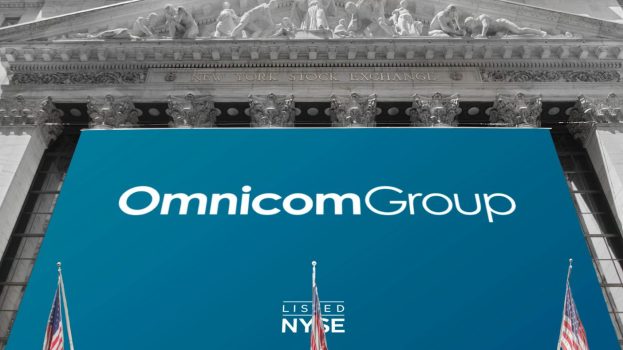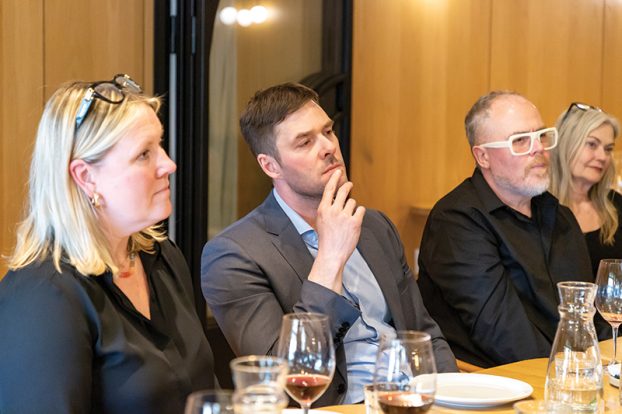Also in this retrospective:
* Celebrating 25 years: ‘We have to bring all the benefits of being big together with all the virtues of being small,’ says executive of the company’s quarter-century in the travel business p.B19
* Industry shows key to Sunquest’s sales efforts p.B21
* Sunquest journey a long and winding road p.B23
Back in the mid-1960s, as a young management trainee in the menswear section of the Woodward’s department store in Edmonton, Patrick Brigham saw a bright future for himself in the world of starched collars and cuff-linked sleeves.
At least, that’s what he thought, until the day word came down from the personnel department that he was being transferred to the housewares section of the store.
Brigham, who had already begun to display the assertiveness and determination for which he would later become widely known and admired, would hear nothing of being moved into a sales area that held little interest for him. So, instead of taking the easy route, he left behind the security of his salaried job at Woodward’s to work in commissioned sales. In the ensuing period, he sold everything from cars to radio advertising.
It was as a representative for a clothing manufacturer called Canadian Converters, however, that Brigham really started to make his mark as a salesman. So successful was he, in fact, that the company, which made shirts under the Van Heusen label, offered him an opportunity to leave Edmonton and his northern Alberta sales territory to sell shirts to clothing stores in the Toronto area.
Ambitious to a fault, Brigham made the move, and quickly established himself as one of the company’s best sales representatives. But, as often happens in business, successful performance doesn’t always lead to the rewards one is expecting.
Disillusioned with being someone else’s employee, Brigham soon joined Golden Wings, a Toronto-based travel business that had been launched by a friend. As president of the company, and still in his mid-20s, Brigham worked out a deal that called for him to receive a 50% equity in the business once certain sales goals were achieved. Upon reaching those goals, however, the offer was rescinded and Brigham decided to strike out on his own with a competitive business. The year was 1972, and Sunquest Vacations was born.
Keenly aware that the Canadian travel industry lagged behind its European counterparts in offering consumers all-inclusive vacation tour packages at affordable prices, Brigham wasted little time in establishing his home-operated company as a successful niche player in the highly competitive wholesale travel business.
Among his first tasks as president of the fledgling Sunquest were to hammer out supplier agreements with Air Canada and Marriott Hotels (Brigham now accedes to the audacity of a 27-year-old industry greenhorn sitting down and demanding concessions from such well established enterprises – ‘I was fortunate enough not to know any better.’) Once those agreements were in place, Brigham had a brochure printed and began marketing Sunquest’s first vacation destination: Acapulco.
Faced with more than a little skepticism by travel-industry veterans who felt that value-priced vacation packages would appeal only to low-income earners, Brigham says Sunquest didn’t need much time to prove its critics wrong. ‘We quickly learned that if the package was good, affordable, and had quality, that we could attract a wide band of consumers,’ he says.
With approximately 16 back-to-back tour programs departing every Saturday from Toronto to Acapulco on Air Canada, Sunquest sold out every package it had available less than two months after Brigham printed the company’s first brochure.
‘I thought, `What an easy business!” says Brigham, who points out that the key to Sunquest’s early and continued success was a deep-rooted commitment to delivering consumers with quality products and services at affordable prices. That commitment, more than being simply a well-intentioned corporate credo, would become Sunquest’s competitive advantage in a business environment that has always been dictated as much by changing weather patterns as by strategic vision.
‘I knew that I was in a business that was very fragile, that we had to run our equipment very close to capacity, and that to do that we had to have exceptional value, a good product, and repeat customers,’ Brigham explains. ‘It doesn’t take a genius to figure that out.’
Although it may not have taken a genius to identify the basic premise for success in the Canadian travel business, it was no ordinary man who made it work. While Brigham led Sunquest’s finances into the profit column year after a year, more than 40 of his competitors disappeared during the period of his tenure.
Certainly, one way Sunquest was able to make money was by everyone within the company following Brigham’s game plan to a tee, whether it was by ensuring that the company’s phones were always answered within three rings to implementing unique and memorable marketing promotions.
One such promotion had the eventual impact of changing the rules of the air travel business in Canada. At the time, federal government regulations had stipulated that tour operators and charter airlines could not sell air seats unless they were sold along with an accommodation package.
Struck by the inequity of the regulations, which strongly favored scheduled air carriers, Brigham came up with a marketing solution: ‘We went out and bought 100,000 tents and told consumers that if they bought an air-only ticket, they’d get a free tent at the airport. All of a sudden, we were in the air-only business, too.’
Such were the methods of Brigham, who refused to let convention get in the way of his company’s success.
People who have worked with Brigham or who have sat across the table from him in deal-making sessions, characterize him as a demanding, yet motivating, boss and a tough, unyielding negotiator who always seemed to get the best arrangement possible for Sunquest. It should be noted that harsh though they may sound, such descriptions of Brigham are invariably delivered with sentiments of fondness and admiration.
Sandra Hogan, president of Sunquest Meetings & Incentives, started working for Brigham in 1976. What she remembers most about her former boss was his incessant desire to get personally involved in all aspects of the business and his uncanny ability to lead his employees through even the most stressful of situations with humor and poise.
Recalling a typical Christmas holiday period – the busiest and most hectic time for any Canadian tour operator – Hogan says, ‘Pat would be barking orders at everybody and getting on the phone to do whatever had to be done to resolve the situation at hand. But, when it was over, he’d open up the bar and make drinks for everybody.’
While Brigham himself agrees that he tended to be uncompromising in his expectations of how Sunquest should be run, he stresses that ‘the ultimate boss was my customer.’
‘I didn’t tolerate our passengers being inconvenienced in any way, or not getting what they were expecting to get,’ he says. ‘I always felt it was important to understand that the customer has worked hard for 50 weeks of the year and that all they want is to take off the next two to relax. They certainly don’t need any aggravation at that point.’
Ken McFarlane, a childhood friend who worked alongside Brigham at Woodward’s and who later joined Sunquest, in 1985, as vice-president of sales, says the thing that contributed most to the company’s success during Brigham’s tenure was the former owner’s ‘obsession with quality’.
Add to that Brigham’s innate abilities in marketing and business management, and the company was destined for success, says MacFarlane.
‘Pat always knew very clearly that marketing was a push-pull process,’ says McFarlane. ‘That meant that you advertised your brand and your product heavily to push people into the travel agent. The pull was to embrace the travel agent to bring the sale through. Strategically, the key is that Pat invested an awful lot of money in the awareness of the Sunquest brand name.’
‘Looking back, I’d say the greatest achievement was that we were profitable for every one of the 22 years I was there,’ says Brigham, who sold Sunquest to British travel giant Airtours PLC in 1995.
With the company being so profitable, why did he sell the company when he did?
‘I always said that I’d retire when I was 50, and I just wasn’t having as much fun with it as when I started. It was like being a parent watching a child grow from being an adolescent into a wonderful adult. Besides, they offered me a lot of money.’
Not bad for a retail clerk who almost ended up selling pots and pans for a living.























